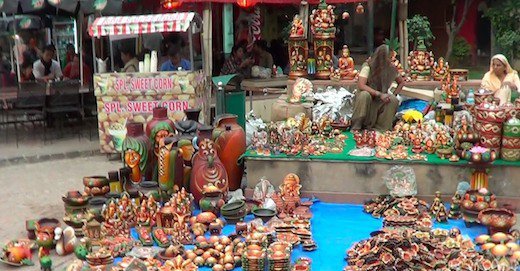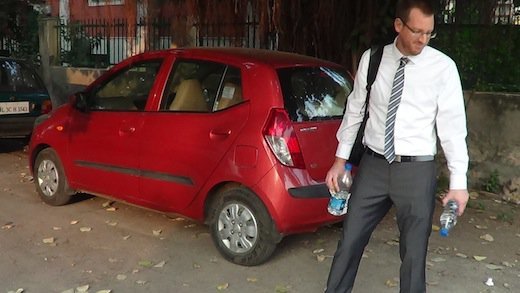Jet lag and culture shock are just plain cruel when they team up. This week I find myself halfway around the world, in a time zone ten-and-a-half hours removed from my own and in a culture so vastly different that it is difficult to comprehend. After two or three days in the east, I fooled myself into believing that I had adjusted well to the time difference. But then Sunday evening and Monday I was so utterly exhausted I had to admit defeat and spend a lot more time flat on my back.
Jet lag is easily enough to overcome–just give it time and a few sleeping pills, and you’ll be back on your feet. It is the culture shock that surprises me more. I have spent my life in Toronto, a city that is multicultural to the extent that over half of its current population was born in a different country. My church is made up of people from all kinds of different countries and ethnic backgrounds. Somehow I thought this would give me an advantage when I suddenly found myself deposited in the middle of New Delhi.
Culture shock is apparently “The feeling of disorientation experienced by someone who is suddenly subjected to an unfamiliar culture, way of life, or set of attitudes.” I guess it is the accumulation of these things that brings about that sense of shock, the quick piling up of the unfamiliar ways of life, the unfamiliar attitudes, the foreign sights and smells.
Delhi is a city of over-stimulation, where there is so much happening, so much that to the outsider appears to be complete chaos, that the mind quickly goes into a state of sensory overload. It is just too much to process all the sights, all the sounds, all the smells, all the movement. I’ve never experienced anything like it.
I have found myself jotting down some of the differences between life in India and life in North America (at least, life in Canada). Here are just a few of the things that take getting used to.
In India there are few bathtubs and few dedicated showers. Rather, most bathrooms are tiled throughout with one side of the room having a toilet and sink and the other having a shower protruding from the wall. Most people seem to use a two-bucket system where one big bucket is filled with water from the shower while a second smaller bucket is used to draw water from the big bucket to pour over your head and body. This saves on hot water since few homes have a large water heater like the ones in North America. Instead, there is often a very small heater mounted over the shower.
In North America, lines on the road are meant to be followed strictly. In India they are almost completely ignored. If the road space allows five cars to squeeze in side-by-side, there will definitely be five cars there no matter what the lines indicate. Cars are also regarded as more of a utility, an object that will necessarily get dented and scratched in the course of normal use.
In North America, cows are to be kept in pastures and there may be legal consequences for those who allow their cows to escape. In India cows wander at will through the city and are corralled only in the evening so they can be milked. If you hit one of these cows with your car, you’d better be prepared for trouble.
In India (and Dubai, for that) every toilet–even the ones in restaurants or malls–has a small hose beside it with a spray nozzle attached. I suppose it serves as an alternative to those who prefer not to use toilet paper.
In India, even in polite company and classier restaurants, you are free to eat with your hands (your right hand, that is) when eating Indian food (I believe other foods are to be eaten with utensils). While utensils may be provided, they are optional. Various forms of bread, most of which are delicious, are used to transport certain foods from plate to mouth. I would expect that much like North American dining, there are many points of etiquette that are minor but meaningful.
In India there are very different expectations for customer service, at least at smaller stores (I haven’t been to the local mall which has many of the same high-quality chains as in North America). No one gets offended if, for example, you buy a coconut at a street stand and the person working there chops the top off and inserts a straw without making eye contact and while maintaining conversation with a friend. Your entire interaction may consist of no more than a grunt or two.
In North America motorcycles are expected to carry one or two people, both of whom risk fines if they do not wear helmets. In India motorcycles can easily fit an entire family or a complete load of freight. Helmets seem to be required for the driver, but optional for passengers.
I had always assumed that culture shock was a myth, or an issue for the weak-minded, or perhaps something that could happen only under the most shocking conditions. But now I see that it can come through the accumulation of so many seemingly small things, small details, that together equal something big and hard to comprehend.
 |
|
(Humayun’s Tomb, one of the most beautiful buildings in Delhi)

(The markets were all geared up for Diwali)

(With the ever-present bottles of water)

(I’m acting all tough here, but actually my face is melting from the food!)










